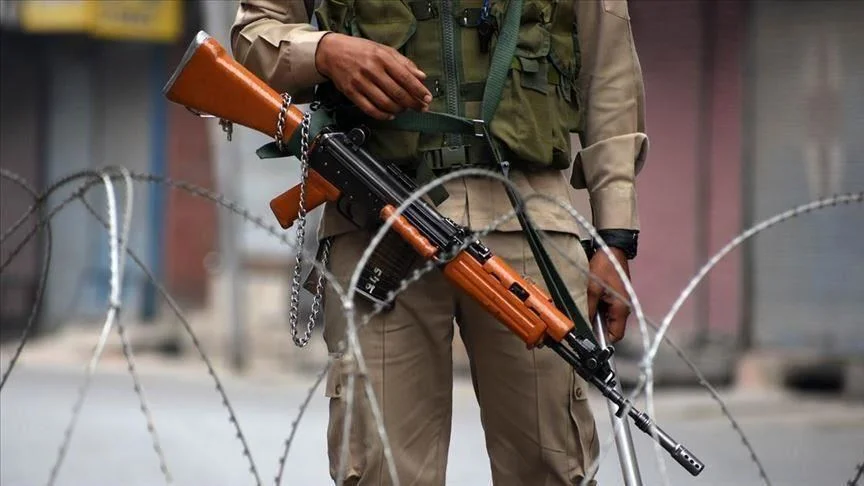Pasban-e-Hurriyat Jammu and Kashmir issued an investigative report on massacre of Kashmiri people by Indian soldiers.
According to details, it was stated that India has massacred innocent citizens more than 9 times in Illegally Occupied Kashmir.
Report revealed that Indian government has killed thousands of citizens in Occupied Kashmir who have been demanding their democratic, political and social rights.
“Indian government has mass-murdered thousands of Kashmiri civilians in the month of pretend democracy in its occupied state of Jammu and Kashmir in January for the last three decades”, said Chairman Pasban-e-Hurriyat Uzair Ahmed Ghazali.
The report stated that in different years, in the month of January, the 26th of which India celebrates the Republic Day, the Indian forces have committed the act of mass murder more than nine times.
Also See: The Kashmir Tragedy: A Genocide Ignored
Pasban-e-Hurriyat report stated that calling India a democratic country is nothing but a collective lie.
“The way the Indian soldiers massacred the Kashmiri people in occupied Kashmir in the month of January, the United Nations should hold India accountable for all these crimes”, report revealed.
The report also stated that on January 8, 1990, Indian soldiers opened fire on innocent civilians in Srinagar city, in which 17 civilians were martyred.
On January 19, 1990, the Delhi government imposed governor’s rule for the first time in occupied Kashmir and gave the notorious Jag Mohan free rein to massacre the Kashmiri people.
On January 21, 1990, more than 60 civilians were martyred by Indian soldiers in Gao Kadal area and around 3 hundred civilians were injured.
On January 22, 1990, 10 civilians were martyred by the Indian forces in Alamgiri Bazar.
It is stated in the report that on January 25, 1990, Indian soldiers martyred 26 civilians in Handwara.
On January 1991, 16 civilians were martyred in Magar Mal area.
On January 6, 1993, brutality was unleashed on the residents of Sopore city where 57 civilians were martyred by indiscriminate firing and hundreds were injured by bullets.
On January 27, 1994, Indian soldiers shot at 27 shopkeepers and passers-by in Kupwara city because they had kept their shops closed on January 26, the so-called Indian Republic Day.
On January 25, 1998, Indian killer soldiers fired on innocent civilians in Windhama killing 28 innocent civilians.
The report stated that the month of January has been a month of grief for the Kashmiri people, in which the Indian troops tried to crush the Kashmiri citizens through coercion and killed thousands of citizens in different districts, cities, towns and villages of the state.
This news is sourced from Daily Times and is intended for informational purposes only.




![Ukrainian and Russian flags with soldier silhouettes representing ongoing conflict. [Image via Atlantic Council].](https://southasiatimes.org/wp-content/uploads/2026/02/2022-02-09T000000Z_1319661209_MT1NURPHO000HXCNME_RTRMADP_3_UKRAINE-CONFLICT-STOCK-PICTURES-scaled-e1661353077377.jpg)

